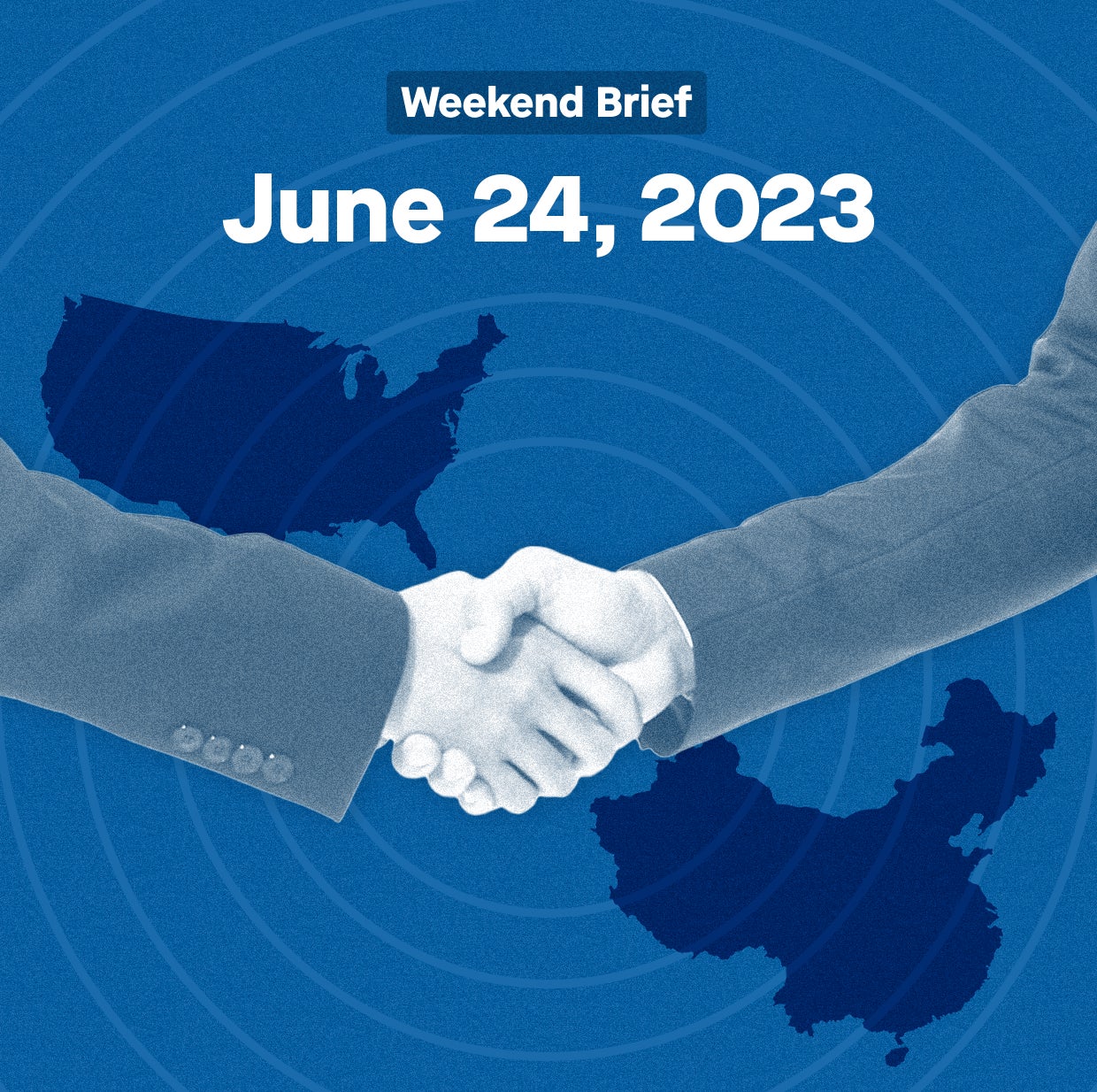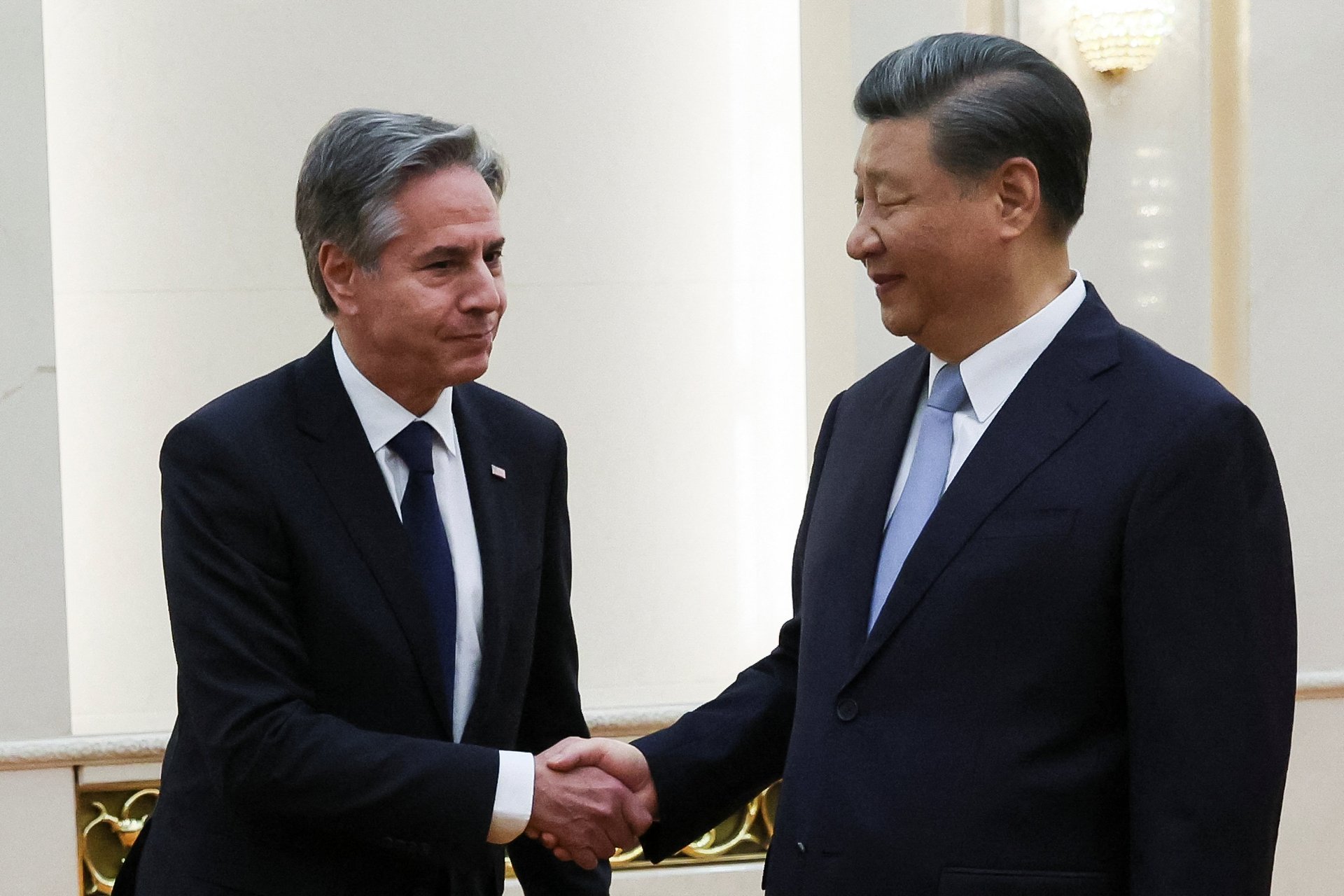Still a great power competition?
Xi Jinping only wants great power competition with the US if it’s on China’s terms


The brief but high-stakes meeting this week between US secretary of state Antony Blinken and Chinese leader Xi Jinping resolved little. It also raised new questions, with Beijing’s official readout (link in Chinese) quoting the Chinese leader as saying that “great power competition doesn’t align with the trend of the times.”
Xi’s line is somewhat confusing, given that Beijing consistently refers to the need for China to become a superpower in key domains like technology and energy so it can be globally competitive. The comment also may be read as a direct rebuttal of official Washington discourse, which has repeatedly cast relations with China in great power competition.
While there’s no clear, agreed-upon definition of what great power competition is, we might understand it as vying for influence across strategic arenas between geopolitical heavyweights. Sometimes, the phrase is used interchangeably with strategic competition. And certainly China is engaged in a long-term, strategic endeavor to establish influence in critical domains like critical minerals, electric vehicles, logistics, and space.
The Chinese government insists that competition alone cannot define US-China relations (link in Chinese). But until recently, it seemed perfectly comfortable describing the rivalry as great power competition. Last month, for example, the official Xinhua news agency quoted a professor (link in Chinese) from the Central Party School, which trains Communist party cadres, as saying that building a modernized industrial system is “an urgent need to win initiative in great power competition.” Similarly, the official Economic Daily newspaper wrote (link in Chinese) that “industry is crucial to great power competition.”
So why is Xi now dismissing great power competition, if various arms of the Communist Party’s apparatus have explicitly embraced the concept?
One interpretation is that Beijing wants to undermine Washington’s framing of great power competition, which of late has taken the form of US-led multilateral restrictions on key Chinese industries, underpinned by a shared conviction that democratic values are preferable to authoritarian ones.
At the same time, Beijing wants to strengthen its own interpretation of great power competition, where “win-win cooperation” is the mainstay. That would indeed serve Beijing’s interests: deeper cooperation would mean embedding China ever deeper into global supply chains, in turn increasing dependencies that China can leverage.
Ultimately, China wants great power competition on its own terms. That means competition in which it feels it can “reach one’s full potential”—even if that entails human rights violations—and from which it can emerge stronger and more influential. Don’t count on Washington signing on to those terms.
What’s the big deal, really?
Bonnie Glaser, managing director of the Indo-Pacific program at the German Marshall Fund, took to Twitter this week to sum up her concerns about Xi’s comments.
“The Biden administration has been trying to convince the Chinese to accept competition as the mainstay of the relationship, and recognize that it is essential to work together to manage the competition and ‘prevent competition from veering into conflict,’” she wrote. But now, the Chinese “apparently don’t buy into this framework at all. That begs the question, is it then possible to stabilize relations?”

Wen-Ti Sung, a political scientist at Australian National University, reckons Xi is calibrating his message for two different audiences.
“Xi’s rejection of US-China competition framing is mostly for international signaling,” he argued. “Domestically, Xi has indirectly accepted it and indeed politically utilized that framing.”
About that “dictator” comment
Great power competition isn’t the only phrase that China is bristling against. On Tuesday, US president Joe Biden essentially called his Chinese counterpart a dictator, and suggested Xi was embarrassed in February when the US shot down a Chinese spy balloon.
Beijing predictably hit back at Biden’s comments, saying they “seriously infringe on China’s political dignity.” The irony here is that the Chinese constitution explicitly describes the nation-state as a “people’s democratic dictatorship.”
There seems to be a clear pattern here: whether it’s “great power competition” or “dictator,” China wants to be the one dictating definitions—and not being dictated to.
One more phrase to get familiar with
Open up any Chinese news site, or pick up any Chinese policy document, and you’ll likely come across the term 卡脖子 (qiǎ bó zi), variously translated as “stranglehold” or “chokehold.” The phrase refers to any critical dependency on foreign imports of advanced technology (e.g. semiconductors) or inputs (e.g. high-purity quartz), which China fears can be leveraged against it by other countries.
China’s solution is two-fold. First: developing its own homegrown technologies and resources so it can get out of chokeholds. Second is launching a “chokehold counterattack”—that is, acquiring specific know-how and sufficient manufacturing capacity so that other countries become dependent on China. Think of China’s grip on rare earths processing and permanent magnet manufacturing, making it both a monopoly and monopsony and complicating other countries’ efforts to build their own rare earth supply chains.
Thanks for reading! And don’t hesitate to reach out with comments, questions, or topics you want to know more about.
Have a great (power) weekend,
—Mary Hui, Quartz reporter